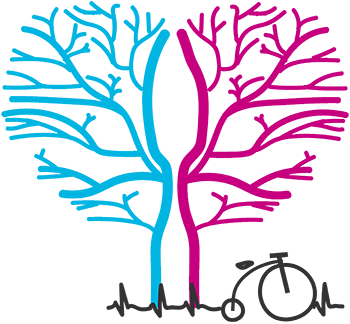Training Programs
Training Program in Basic and Translational Cardiovascular Science
Program Objectives:
This is a training program in its 11th year to support predoctoral and postdoctoral research trainees in a multidisciplinary research program in cardiovascular and vascular diseases spanning from molecular and cellular studies, imaging, biomedical engineering, to translational science. We have been highly successful in expanding our training program from 31 faculty five years ago to 40 faculty currently. The faculty in our Training Program are from five different schools/Colleges. The curriculum and activities developed within the training program have been used as models for other training grants in translational research on campus and hence, serve a wider group of trainees at UC Davis.
Our graduate trainees are recruited from multiple graduate programs including Molecular, Cellular and Integrative Physiology (MCIP), Pharmacology and Toxicology (PTX), Biochemistry, Molecular, Cellular and Developmental Biology (BMCDB), Biophysics (BPH) and Biomedical Engineering (BME), a truly multidisciplinary program. The program is grounded on the principle that trainees, who will ultimately engage in cardiovascular-related research, must have a firm foundation in fundamental cardiovascular physiology, molecular biology/genetics, and cell biology. In addition, the trainees should have ample opportunities to learn and master state-of-the-art techniques in imaging, proteomics, metabolomics, genomics, and bioinformatics. Additional goals of the Training Program are to provide trainees with the tools necessary for success, including techniques for scientific presentation, manuscript writing, grantsmanship, and academic survival skills. Postdoctoral trainees can benefit from these same intellectual resources, but must also be prepared to establish their own laboratories in order to achieve independent research funding and produce scholarly written and oral presentations of their research. Finally, a premise of the program is that translational and basic science trainees under the same umbrella will be exposed to a diverse, and yet cohesive, collegial atmosphere that would be impossible to achieve otherwise.
Current Trainees:
Predoctoral trainees
|
Aiyana Emigh |
(Professor Vladimir Yarov-Yarovoy) |
|
Collin Matsumoto |
(Professor Fernando Santana) |
|
Charlotte Vorwald |
(Professor Kent Leach) |
|
Jennifer Price |
(Professor Johannes Hell) |
|
Harkanwalpreet Sodhi |
(Professor Alyssa Panitch) |
|
Gonzalo Hernandez |
(Professor Colleen Clancy) |
|
Danica Ito |
(Professor Rose Dixon) |
|
Linhui Li |
(Professor Kevin Yang Xiang) |
|
Kevin Campbell |
(Professor Eduardo Silva) |
Postdoctoral trainees
| Che-Wei Chang, Ph.D. | (Professor James Chan) |
| Phung N. Thai, Ph.D. | (Professor Nipavan Chiamvimonvat) |
| Jeong Won Choi, M.D. | (Professor Jeffrey Southard and Anne A. Knowlton) |
Predoctoral Training in Pharmacological Sciences
Program Objectives:
The overarching goal of this predoctoral Pharmacological Sciences Training Program (PhTP) is to educate next generation of biomedical researchers in the concepts of drug discovery and development and to provide a clinical perspective. Trainees come mainly from 4 graduate programs (Pharmacology and Toxicology, Physiology, Biomedical Engineering and Neuroscience) developing expertise in diverse areas. This reaches from classic pharmacology and drug target identification with cutting edge methods in biochemistry, structural biology, genomics molecular and cell biology, high resolution imaging, electrophysiology and behavioral physiology, to medicinal chemistry, engineering of microfluidic and other devices, animal models of disease, novel in vivo whole animal imaging and translational therapeutics in clinical trials. The PhTP will provide focused and student-tailored small group training in the core principles of pharmacology for non-pharmacology trainees, and enmesh these students together with pharmacology students for more interdisciplinary group learning in the drug discovery and development. A second goal is to enable all trainees to communicate and collaborate across the large array of research disciplines they represent. This goal is mainly realized in a highly innovative student-driven, project-oriented course Problem Solving in Pharmacological Sciences, which reinvents itself every year based on student initiative and interest. The 51 training faculty are from 22 departments in 6 colleges, where extensive collaborative interactions already exist. Trainers provide in depth expertise that ranges from identifying novel therapeutic molecular targets and development of therapeutic molecules to clinical drug and stem cell trials at the NIH-funded UC Davis Clinical and Translational Science Center (CTSC) and NIH-designated Cancer Center. Novel drugs for treatment of cardiovascular, neurological, and immunological diseases and cancer, the four focus areas of our PhTP, have been developed and are being brought to clinic by several faculty at UC Davis.
| Trainee | Grad Group | Professor | |
| Year-2 | Lily Mott | MCIP | Crystal Ripplinger |
| Year-2 | Noemi Castro | BMCDB | Kermit Carraway |
| Year-2 | Bryan Nguyen | BME | Randy Carney |
| Year-2 | Tory Edwards | MCIP | Don Bers |
| Year-2 | Joseph Cronin | PTX | Aiming Yu |
| Year-2 | Ruben Berumen | PTX | Johannes Hell |
| Year-1 | Ulrik Mjaaseth | Nutritional Bio | Fawaz Haj |
| Year-1 | Anais Saunders | PTX | Jeremy Chien |
| Year-1 | Sophia Salbato | MCIP | Madeline Nieves-Cintron |
| Year-1 | Rahaf Shishani | MCIP | Bethany Cummings |
| Year-1 | Nathan Cook | BMCDB | Mark Huising |
| Year-1 | Trey Brasher | PTX | Mark Mascal |
| Year-1 | Geir Hareland | BPH | Jon Sack/Vladimir Yarov-Yarovoy |
Emerging Therapeutic Targets for Cardiovascular Disease
Training Program in Basic and Translational Cardiovascular Science
Training Program in Pharmacology
IORs- Drs. Nipavan Chiamvimonvat, Xiaodong Zhang, and Deborah Lieu
CLH 298, CRN 26739
Tuesday and Thursday 12-1 p.m.
Location: In person, GBSF Auditorium
Time: The course will meet Tuesdays and Thursdays at 12-1 p.m. in October, November and December for 10 weeks.
General Course Description: The goals of the T32 Core Courses are 1) Provide an overview for pre- and post-doctoral training in Cardiovascular Research, 2) State-of-the-art techniques in Cardiovascular Research and biotechnology, 3) Cardiovascular and vascular biology and physiology in health and diseases.
Topics and Speakers
Week 1
October 3, 2023
Topic: "Aging-induced remodeling of cardiac calcium channels"
Instructor: Dr. Rose Dixon, Associate Professor, Department of Physiology and Membrane Biology
October 5, 2023
Topic: "Vascular ion channel regulation and remodeling in diabetes"
Instructor: Dr. Manuel Navedo, Professor, Department of Pharmacology
Week 2
October 10, 2023
Topic: "Targeting abnormal pH and chloride regulation in cardiovascular disease"
Instructor: Dr. Xiaodong Zhang, Associate Professor, Division of Cardiovascular Medicine
October 12, 2023
Topic: "Machine learning for deciphering the mechanisms of heart failure"
Instructor: Dr. David Liem, Project Scientist, Division of Cardiovascular Medicine
Week 3
October 17, 2023
Topic: "Cardiac arrhythmias and the excitation-Ca signaling-contraction dynamic system"
Instructor: Dr. Ye Chen-Izu, Professor, Departments of Pharmacology, Biomedical Engineering, Internal Medicine
October 19, 2023
Topic: "Multiscale prediction of drug-induced cardiac arrhythmias: from the atom to the rhythm"
Instructor: Dr. Igor Vorobyov, Assistant Professor, Department of Physiology and Membrane Biology
Week 4
October 24, 2023
Topic: "New Treatment Paradigms for Vascular Diseases"
Instructor: Dr. Misty Humphries, Associate Professor, Department of Surgery
October 26, 2023
Topic: "2023 Combined CVRI Retreat and & Heart Day!"
Location: Betty Irene Moore Building, RM 1000, 4610 X Street, Sac CA 95817
Week 5
October 31, 2023
Topic: "Regulation of the neuronal L-type Ca2+ channel Cav1.2 by norepinephrine"
Instructor: Dr. Johannes Hell, Professor, Department of Pharmacology
November 2, 2023
Topic: "New strategies for the treatment of heart failure"
Instructor: Dr. Martin Cadeiras, Professor, Department of Internal Medicine
Week 6
November 7, 2023
Topic: "Cardiovascular disease in women"
Instructor: Dr. Imo Ebong, Associate Professor, Division of Cardiovascular Medicine
November 9, 2023
Topic: "Functional connectomes in heart failure"
Instructor: Dr. Leighton Izu, Professor, Department of Pharmacology
Week 7
November 14, 2023
Topic: "Sinoatrial node regeneration"
Instructor: Dr. Deborah Lieu, Associate Professor, Division of Cardiovascular Medicine
November 16, 2023
Topic: "Enhancement of cardiac stem cell-based therapy"
Instructor: Dr. Padmini Sirish, Assistant Researcher, Division of Cardiovascular Medicine
Week 8
Happy Thanksgiving! No classes
Week 9
November 28, 2023
Presentation by current Trainees in T32 in Cardiovascular Medicine (10 min for each presenter)
Nataliya Bahatyrevich, Ph.D., Michelle Chan, Gonzalo Hernandez, Ph.D., Nathaniel Herrera, Khoa Ngo
November 30, 2023
Presentation by current Trainees in T32 in Cardiovascular Medicine (10 min for each presenter)
Victoria Salemme, Francisco Figuroa, Edith Jones, Ph.D., Kyle Rouen, Nikunj (Nick) Donde, M.D.
Week 10
December 5, 2023
(Pharm and Cardio Trainees only)
Topic: "Building Resilience: Workshop (1-2 combined) to aid trainees’ wellbeing"
Instructor: Dr. Bai-Yin Chen, Department of Counseling Services


